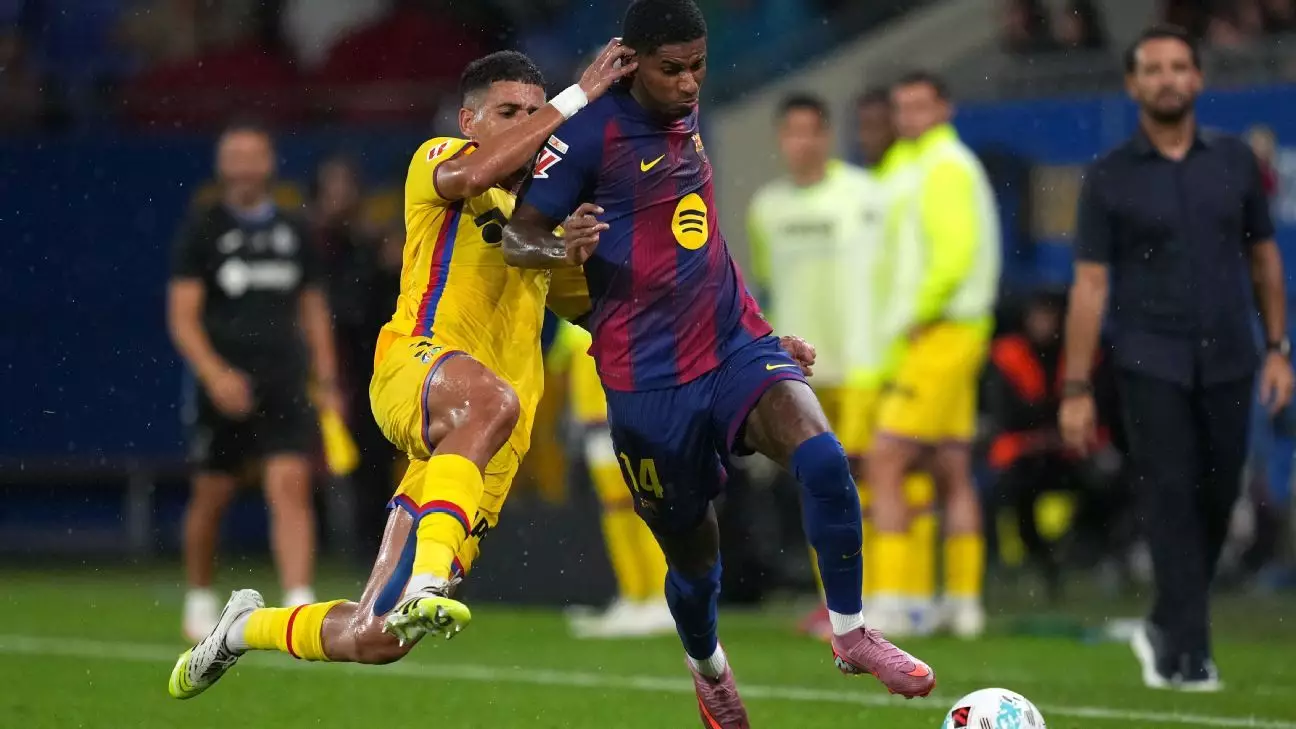In the high-stakes world of professional soccer, leadership isn’t just about tactical acumen — it’s rooted in discipline and consistency. The recent case of Marcus Rashford exemplifies how modern coaches leverage policies of excellence, sometimes seemingly minor, to cultivate a culture where accountability is paramount. Rashford, a standout performer, was benched after arriving late to a crucial activation session, highlighting a coach’s unwavering stance on punctuality. While some may perceive this as a rigid approach, it underscores an important lesson: sustainable success depends on unwavering standards, regardless of individual talent.
Effective leadership in sports demands clarity and fairness. Coach Hansi Flick’s zero-tolerance policy on lateness illustrates a fundamental principle — every player, regardless of their stature, must adhere to team norms. These policies serve a dual purpose: they maintain order and foster an environment where discipline is non-negotiable. This kind of environment pushes players to elevate their professionalism, making their performances not just about physical skill but about mental resilience and commitment. Rashford’s subsequent contributions as a substitute also reinforce that discipline does not diminish impact; it amplifies it.
Furthermore, the emphasis on consistency is crucial. Flick’s strategy to rotate players, including Rashford, based on their physical state and match demands, demonstrates adaptive leadership. Not every performance metric is evident on the score sheet, but making tough decisions about who to include or exclude ensures the team remains competitive and fresh. This approach embodies the mindset that growth stems from accountability and discipline, a lesson applicable far beyond the football pitch.
The Fine Line Between Competitiveness and Fairness
High-level sports often strip away complacency, revealing the importance of fairness shaped by clear standards. Critics may argue that benching Rashford over a minor punctuality lapse is overly strict, yet such policies are essential in elite sports environments. The professionalism of a team hinges on everyone respecting shared goals; a single lapse, if tolerated, can undermine the collective effort.
In this context, the detailed narrative around Rashford’s situation exemplifies how transparency in decision-making builds trust within teams. When Flick clarified that Rashford’s lateness was only marginally late and not a major concern, he reinforced the idea that accountability is handled with nuance, not just rigid rules. This balances discipline with understanding, fostering a culture where players feel valued but are also held responsible.
Beyond discipline, Flick’s management showcases the importance of tactical flexibility. His decision to rest Rashford after a demanding midweek game against Newcastle demonstrates attentiveness to players’ physical well-being. By doing so, Flick emphasizes that sustainable success requires strategic load management. Such decisions reflect a holistic understanding of performance, where mental and physical freshness contribute equally to victory.
This strategic patience was evident as Rashford re-entered the game, setting up a decisive goal late in the match. His cameo appearance encapsulates the potential of disciplined preparation—showing that sometimes, good things happen when players are managed with a mix of strict standards and tactical flexibility.
The Culture of Excellence: More Than Just Winning
What stands out from this narrative is the broader philosophy influencing this modern approach to coaching. Success is not solely about winning matches; it’s about cultivating a culture of professionalism, resilience, and respect for the game. Flick’s outspoken comments and strategic choices underscore an ambition to build teams rooted in discipline rather than chaos.
The reactions from players and managers further exemplify how these standards resonate beyond team lines. The fiery exchange between Torres and Bordalas over fouls and competitiveness highlights how intense the pursuit of excellence can be. Such debates, while heated, reveal the underlying stakes — a relentless pursuit of superiority rooted in discipline and tactical awareness.
Moreover, the Raphinha and Jules Koundé examples serve as reminders that in highly scrutinized environments, personal discipline is scrutinized as much as technical skill. The ability to handle pressure, adhere to team norms, and recover from setbacks defines top athletes. Flick’s emphasis on focus, irrespective of individual brilliance, makes clear that greatness is as much about consistency as it is about moments of brilliance.
In a landscape where success often hinges on marginal gains, this disciplined approach fosters an environment where every action counts. It’s a testament to how contemporary coaches are not just tacticians but builders of character, setting standards that transcend the game itself. These principles, rooted in discipline and focused leadership, are indispensable in achieving lasting excellence amidst fierce competition.


Leave a Reply